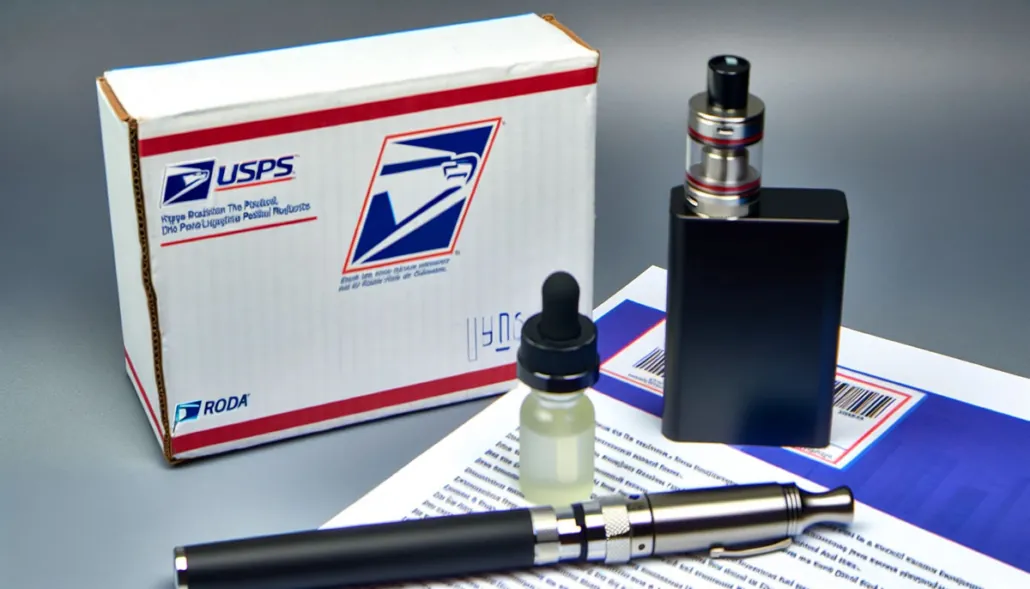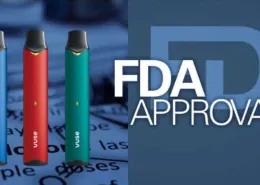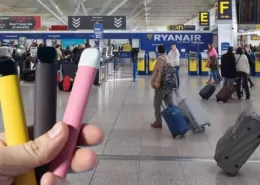USPS Vape Shipping Regulations: Compliance Guide for Vapers
As a vaper, or a vape business owner, it’s crucial to stay up-to-date with the latest shipping regulations, especially when it comes to sending your vaping products through the United States Postal Service (USPS). In this in-depth guide, we’ll explore the current USPS policies on mailing vapes, the potential consequences of non-compliance, and alternative shipping options to ensure your vaping products reach their destination safely and legally.
USPS Prohibits Mailing of Vaping Products
As of October 21, 2021, USPS has implemented a ban on mailing vape pens, e-cigarettes, e-liquid pods, and other electronic nicotine delivery systems (ENDS) as nonmailable matter. This decision was made to comply with the Prevent All Cigarette Trafficking (PACT) Act, which was amended in December 2020 to include ENDS, subjecting vaping products to the same restrictions as cigarettes and other tobacco products.
The prohibition applies to all individuals and small businesses, effectively preventing them from sending vapes through the mail. It’s essential to note that the ban encompasses all vaping products, regardless of whether they contain nicotine or not. According to the USPS website, “This final rule does not extend to hemp-derived CBD with 0.3 percent or less of THC, nor any other matter that is not already a nonmailable item under the existing standards.”
Exceptions to the USPS Vape Shipping Ban
While the USPS vape shipping ban is comprehensive, there are a few exceptions to the rule:
Business-to-Business (B2B) Shipments
The new rule exempts B2B shipments from the mail ban, allowing businesses to ship vaping products to other businesses. However, the process for B2B shipping is onerous and requires companies to be approved by USPS. The application process is difficult and time-consuming, and there is no grace period for compliance.
To use the B2B exemption, shippers must personally deliver outgoing packages to a post office counter or business mail acceptance location, which may not be practical for companies sending large quantities of products. There are also exacting requirements for companies receiving deliveries, and the application process requires constant updating with new delivery recipient and licensing information.
Due to the red tape imposed by POSECCA and the PACT Act, vape companies shipping B2B may find it more effective to explore private shipping networks rather than dealing with the headaches of the USPS application process.
Private Individuals
The final USPS rule allows private individuals to ship no more than 10 packages to another person during any 30-day period, provided the transactions are not commercial and no money changes hands. The packages must weigh no more than 10 ounces and must be shipped using specified USPS services with adult signature at delivery.
This exception can also be used to return “damaged or unacceptable” products to a manufacturer or seller, although it does not allow the seller to mail a replacement product to the consumer. Full details of this provision are available to download on the USPS site.
Intrastate Shipping within Alaska and Hawaii
The rule allows businesses in Alaska and Hawaii to ship to consumers within the borders of their states. Shippers must still follow all the rules of the PACT Act and cannot ship to out-of-state customers.

Federal Regulations and Consequences of Non-Compliance
The USPS vape shipping ban is part of a broader effort to prevent minors from accessing vaping products. The Preventing Online Sales of E-Cigarettes to Children Act, which took effect in 2021, requires all ENDS to be treated as generally nonmailable matter. Violating this rule can result in severe penalties, including fines of at least $250 per violation.
Attempting to send vapes through USPS can lead to serious consequences, such as civil and criminal penalties under federal law. Fines can reach up to $5,000 for each violation, and individuals may face imprisonment for up to three years. If found guilty of shipping vapes to minors, the penalties are even more severe, with fines of up to $10,000 and imprisonment for up to five years.
The Bureau of Alcohol, Tobacco, Firearms and Explosives (ATF) is responsible for enforcing the PACT Act and its amendments. According to the ATF website, “The PACT Act requires, among other things, that delivery sellers who sell, transfer, or ship for profit cigarettes or smokeless tobacco in interstate commerce must first register with the ATF and the tobacco tax administrators of the states into which a shipment is made or in which an advertisement or offer is disseminated.”
Packaging Requirements for Vapes
While USPS prohibits the mailing of vaping products, it’s essential to understand the proper packaging requirements if you choose to use alternative shipping methods. Proper labeling is crucial, and all packages containing vapes must include the sender’s and recipient’s names and addresses, as well as the words “Electronic Nicotine Delivery System” or “ENDS” on the address side of the package.
Secure packaging is equally important to prevent damage during shipping. Use a sturdy box, wrap each vape or e-cigarette individually in protective material, and fill any empty space with cushioning materials. Seal the box securely with packing tape, ensuring all seams and edges are covered.
The Consumer Product Safety Commission (CPSC) provides guidance on the safe packaging and labeling of nicotine-containing products, including e-liquids. According to the CPSC, “The Child Nicotine Poisoning Prevention Act (CNPPA) requires that certain liquid nicotine containers be packaged in accordance with the Poison Prevention Packaging Act (PPPA).”

ECIGATOR
Ecigator is one of the well-known vape brands spun off from FM Technology Co., Ltd, it’s an ISO-certified disposable vape manufacturer for OEMs, ODMs, and OBM since 2010. The founder team comes from top firms with more than 10 years of experience in the vaping industry and has devoted thousands of hours to providing users with a better and better experience.
Alternative Shipping Options for Vapes
With USPS, FedEx, and UPS all prohibiting the shipment of vape products, vapers must explore alternative shipping options. Private courier services specializing in shipping vape products, such as DHL, Purolator, and Canpar, are not subject to the same restrictions and can be a viable option.
Another alternative is to use shipping services that specialize in the transportation of tobacco products, such as Tobacco Shipping Solutions, Tobacco Express, and Tobacco Specialists. When using these services, it’s crucial to ensure compliance with all applicable laws and regulations and to choose a provider with experience in shipping vape products.
It’s important to note that even when using alternative shipping options, businesses must still comply with the PACT Act’s registration and reporting requirements. The National Association of Attorneys General (NAAG) provides resources and guidance for businesses seeking to comply with the PACT Act.
State and Local Regulations
In addition to federal regulations, vapers must also be aware of state and local laws governing the sale and distribution of vaping products. Many states have implemented their own restrictions on the sale and shipping of vapes, which may be more stringent than federal regulations.
For example, in California, the Stop Tobacco Access to Kids Enforcement (STAKE) Act prohibits the sale of tobacco products, including vapes, to anyone under the age of 21. The state also requires all businesses selling tobacco products to obtain a license from the California Department of Tax and Fee Administration.
It’s essential to research and comply with all applicable state and local regulations when shipping vaping products to avoid legal consequences and ensure the safe and responsible distribution of these products.
Conclusion
Understanding the current USPS vape shipping regulations is crucial for vapers who need to send their products. With the prohibition on mailing vaping products, individuals and small businesses must explore alternative shipping options to avoid serious consequences. By staying informed, following proper packaging requirements, complying with federal, state, and local regulations, and choosing reputable shipping providers, vapers can ensure their products reach their destination safely and legally.
As the vaping industry continues to evolve, it’s essential to stay up-to-date with the latest shipping regulations and best practices. By prioritizing compliance and responsible distribution, vapers can help ensure the long-term sustainability and safety of the industry while protecting consumers and preventing youth access to these products.
- Vaping Laws in New Mexico: Guide of Age, Flavors, Tax & Rules - June 28, 2025
- Vaping Laws in New Hampshire: A Comprehensive Guide for You - June 27, 2025
- Paraguay Approves Bill to Regulate Vapes with Low Tax Rate - June 27, 2025









